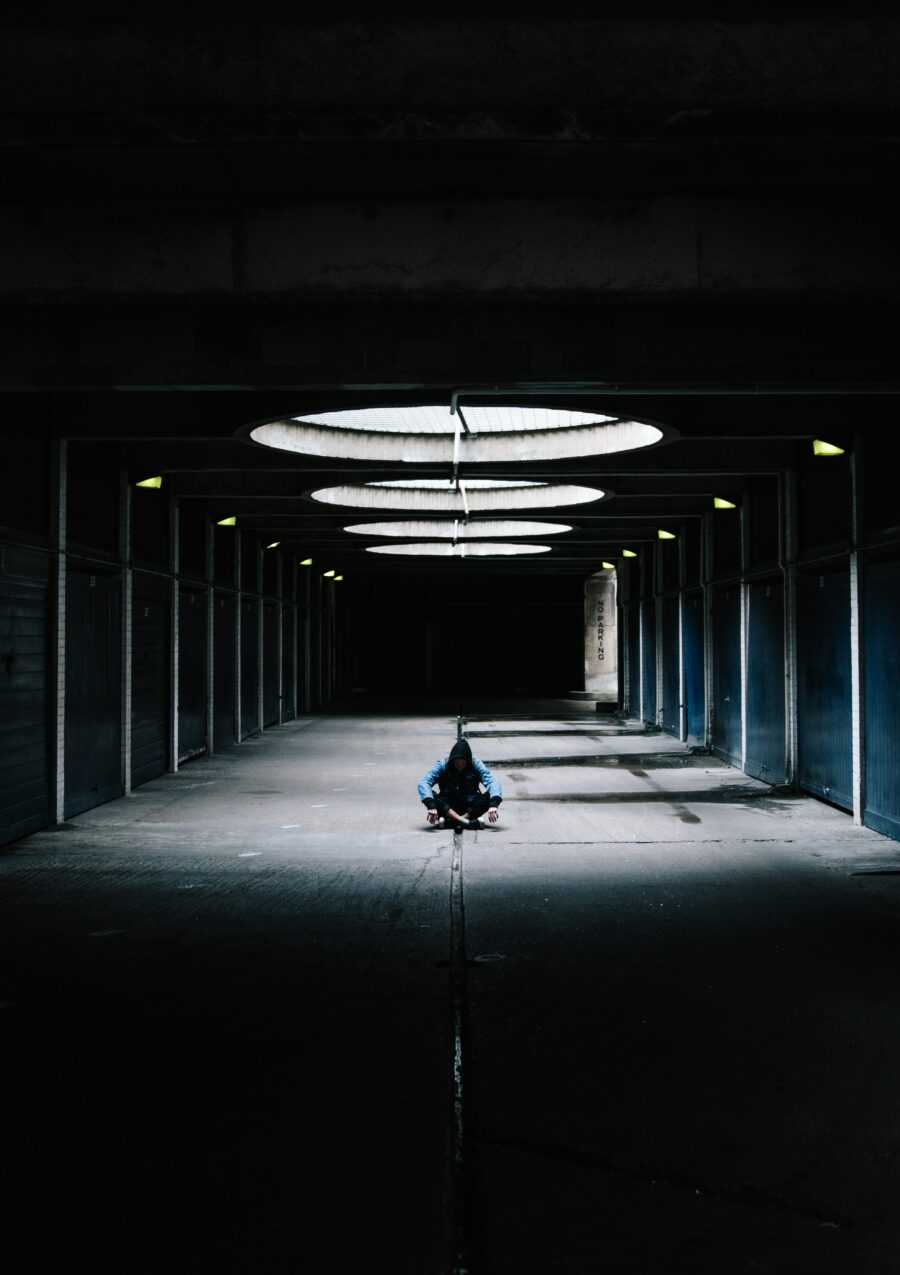
A Home of One’s Own
- Olga Kwak
- 05 Jan 2018
A housing solution for mental health consumer-survivors
Housing is a human right – and we must work as a community to make sure that everyone has a home, because we cannot succeed as a city when we leave any of our citizens behind.
A place to call home is the root that our mental health springs from. In Maslow’s Hierarchy of Needs, a psychological framework of human needs, the first level is physiological: food, water, warmth, and rest. A home is where you can satisfy all of those needs. Without a home people experience barriers such as access to health care, child support, and disconnection from their community. People who do not have homes lose the ability to participate fully in society.
By providing our most vulnerable community housing – without restrictions or caveats – we also improve our health care system and remove stress from other over worked government support systems because individuals who have homes can take care of themselves better.
In 2007 the United Nations issued a report that declared Canada’s housing situation a “national crisis”. In the decade preceding the report, the federal government cut social housing spending and worked to bring more housing investment into the country through new build houses and condominium buildings. The result was that less social housing projects were built in the last three decades. A shift happened in the 1980s: support for our communities that was deemed essential following World War II moved towards building self-interest and capital wealth. At the same time, wages have not been able to keep up with the rise of inflation an precarious employment has become standard practice. This has led to a crisis that we’re only beginning to address now.
While empirical evidence shows that the majority of people facing homelessness thirty years ago were single adult males, as social housing and wages stagnated, the faces of the homeless population began to change to include more women, children, and seniors.
Hamilton has seen the changing nature of economic stagnation on its own streets, which is perhaps why it has had a chance to address the social issues facing our vulnerable community members in a number of ways. Hamilton is one of the first communities to sign up for the 20,000 Homes campaign, a national project to address the “national emergency” of homelessness.
While a lot of federal programs have stagnated over the years, Hamilton has been quietly working through its many community organizations and non-profits to get as many people off the street as possible. But there is still much to be done, and we can’t rely solely on the municipal government to provide all of the solutions, which is why community members and organizations have begun building support networks, in tandem with City Hall, to fill in the gaps.
RISING STAR CO-OPERATIVE
One such project is Rising Star a peer-driven co-operative housing initiative. Lisa Burton, one of the organizers for Rising Star, a project begun by Lance Dingman in 2006, describes the project as a housing solution for “mental health consumer-survivors”, a term used to distinguish between individuals who are either currently in recovery and accessing the tools and services to improve the state of their mental health (consumers) and those individuals who have exited the programs and services and are in a position to take care of themselves and live independently (survivors.) The reason peer support is emphasized in this project’s mandate is because it creates a beneficial relationship between mental health consumer-survivors wherein a person who successfully copes with their mental health issues can provide guidance for individuals who are at the beginning stages of their recovery. “As an individual walks through recovery, we train [them] so they can do our job,” Ms. Burton explains.
They chose a co-operative housing approach to make it affordable and accessible, to give rights and responsibilities of operating the building to the residents, it’s an inclusive space that provides support to mental health consumer-survivors and ownership to the building tenants. Rising Star’s supported housing model allows residents to move in and out of the space without cutting off resources that allow mental health consumer survivors to continue to thrive in the community at-large and offer support for individuals who are at the beginning of their recovery process. And because it’s peer-supported community participation, the individuals who are recovering have a better say as to how they can be helped – and help others.
Rising Star is working in partnership with Hamilton Community Foundation’s Neighbourhood Leadership Institute, Kiwanis Homes’ Executive Director Brian Sibley, and the City of Hamilton’s Social Planning and Research Council to build a board, incorporate and create this future home. Rising Star’s goal is to find a suitable location through the Neighbourhood Action Strategy that will best serve the needs of their tenants, ideally a mixed-income neighbourhood with access to public transit. In January Rising Star will begin writing their Objects for Incorporation, with assistance from the SPRC.

INDWELL
Indwell is a Christian organization that supports over 400 households in Hamilton, Woodstock and Simcoe, with plans to convert and build more new spaces. This supportive housing structure ties services to the organization and are led by Indwell’s team. I was given a tour of the Perkins Centre, where I found that everyone is invested in being a part of the community created in the building.
Jessica Brand, Program Manager of the Hamilton Indwell apartments, explains Indwell’s goal is to “come up with more answers to affirm people’s dignity and independence while providing them with just the amount of support that they need.” To that end, they run a variety of different types of residences that address the spectrum of supporting individuals with mental health issues and needs. The Wentworth Group Home offers the highest amount of support for individuals living on a fixed income. Strathearne Suites offers increased support to help reduce hospital visits with independent living spaces, and 500-512 James St. North is a new building project that will create 45 more affordable housing apartments in Hamilton’s north end. The James St. North project is a partnership with Hughson Street Baptist Church, which owns the property. Indwell operates the living facilities while the church occupies the first and second floors. “People need different support, [but] everyone needs community,” Ms. Brand says. “[Indwell] creates spaces where community can happen.”
Ms. Brand agrees that there are some limitations to the supported housing model. Sometimes there are good ideas that Indwell cannot implement because they need to be done in the “clubhouse model” – peer-supported social housing that is led by the individuals themselves rather than the organizers who run the buildings.
More can be done to address the nuances that affect homelessness rates. Policies that address the particular issues that lead to homelessness for youth, LGBTQ, seniors, Indigenous peoples, and veterans need more support from all three branches of government. And focus needs to be given towards prevention over emergency responses to reduce the number of vulnerable people who are at risk of losing their homes. That will keep more people out of emergency shelters that are dangerously stretched thin as it is and will lead to more permanent housing solutions in a quick and efficient manner. A municipal wide homeless strategy should also include a database such as the Homeless Individuals and Families Information System – free software available from the federal government that can track the progress of individuals within and on the boarders of the system.
We all deserve to have a home. This message may be at odds with the free market ideal that housing is an investment, but that idea driving the housing market’s rates is flawed because it erases humanity’s compassion. Less people are able to afford purchasing their own homes, which means more are likely to rent and look for alternatives. Precarious employment and stagnating wages has taken a toll on the mental health of many individuals – a recent Hamilton Community Foundation survey prepared by McMaster researchers shows that 1 in 10 millennials in Hamilton believe that the economic situation is getting harder for their generation than previous generations and over 25% of millennials in the GTHA reported their mental health as less than good, as compared to only 5% of people between the ages of 35 and 65. Many people are sitting on the edge of a breakdown and a lack of decent housing is a big factor, as rental rates go up and more vulnerable people are pushed into the outskirts of our communities to make way for individuals fleeing outrageous living costs from other cities that outpace their income growth.
One in five Ontarians will face a mental health problem in their lives. Individuals living below the poverty line are more prone to mental health problems because a lack of money creates more stress, creates poor food choices, and exacerbates pre-existing mental health problems. Without adequate social housing that helps vulnerable people we all suffer because our city only truly succeeds when everyone succeeds.
Luckily we live in Hamilton, a city that knows the true meaning of hardship. We’re the Ambitious City, with True Grit, and some would even say that we’re unstoppable. We are all part of the process of rebuilding the city, but the renaissance must assist all of our people, not just the ones who stand to make a profit from buying low and selling high.
Comments 0
There are no comments


Add comment